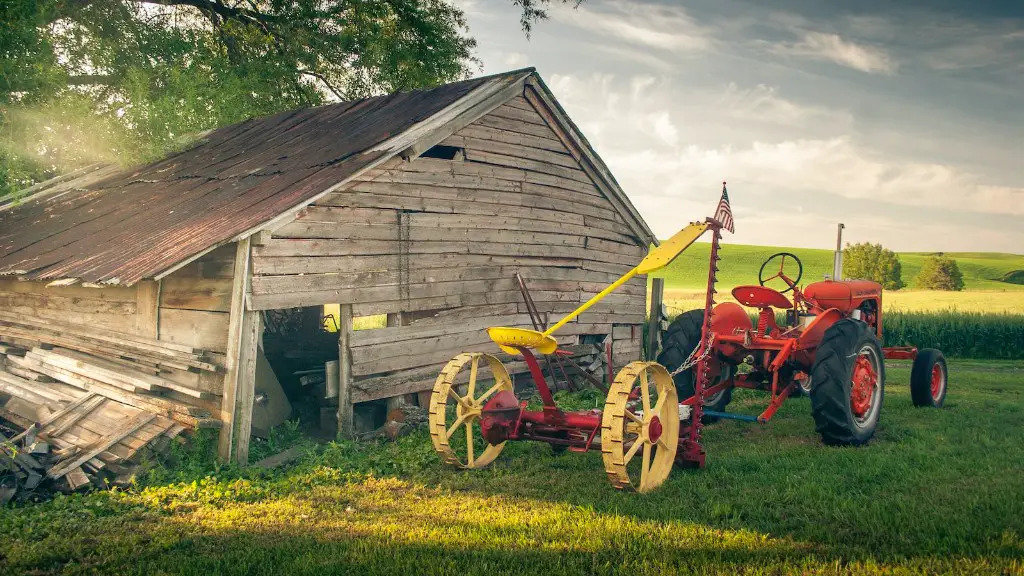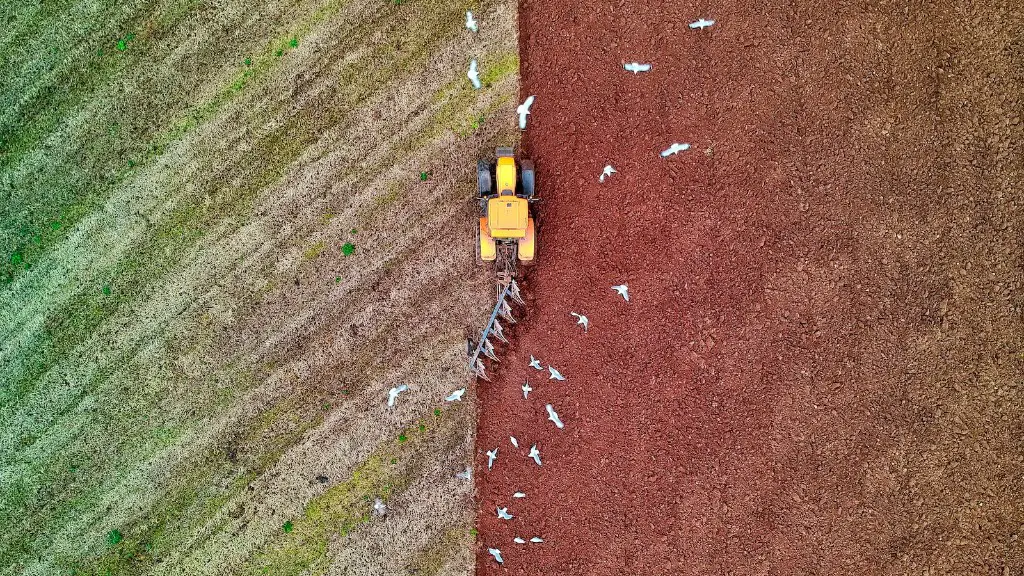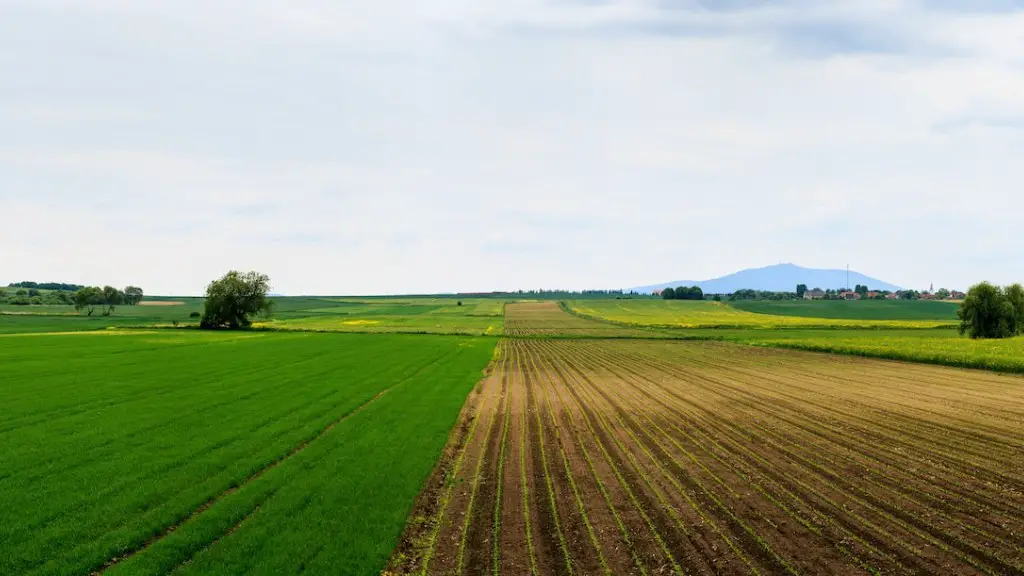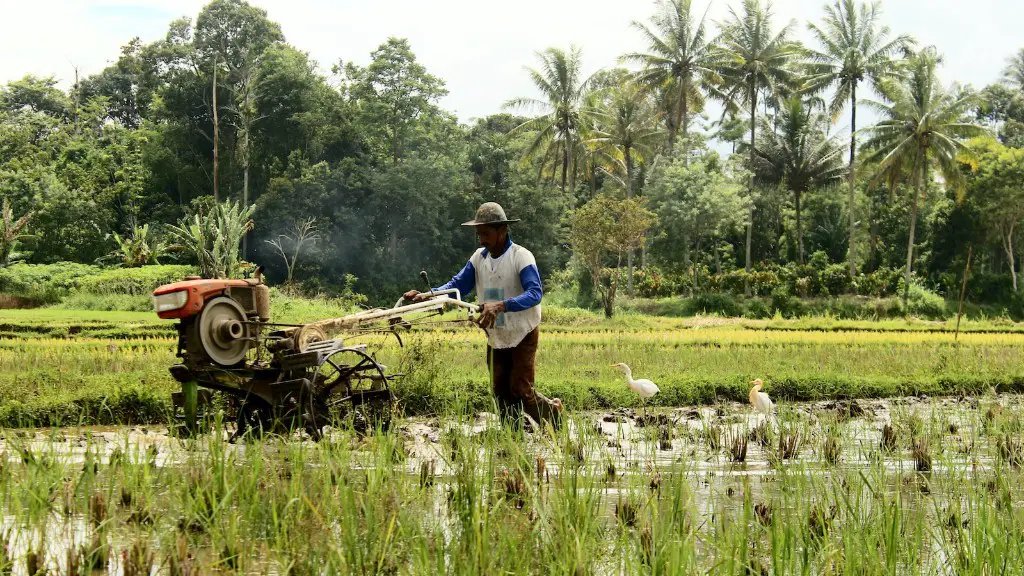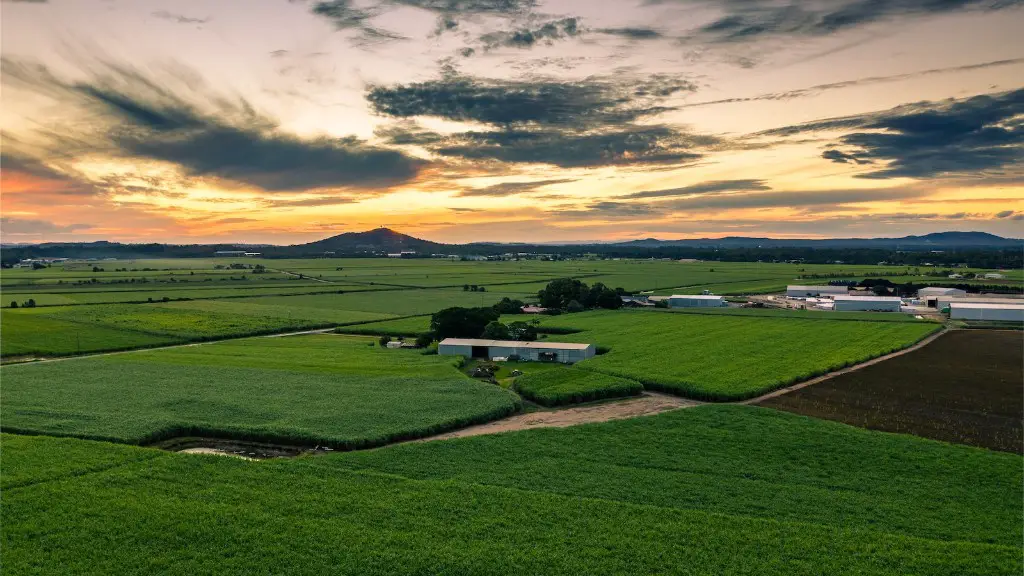Agriculture, food, and natural resources encompass the study of how to produce and process food, fuel, and fibers efficiently and responsibly, while caring for natural resources. It includes the study of animal, plant, and soil sciences, as well as agroecology, food systems, and sustainable agriculture.
Agriculture, food and natural resources encompass the study of how to produce food using farming and ranching techniques, how to protect and manage natural resources such as soil, water and wildlife, and how to develop more efficient and sustainable ways to use these resources. It also includes research on how to make food production more efficient and sustainable, and how to better manage natural resources.
What is agriculture, food, and natural resources?
The Agriculture, Food and Natural Resources cluster is a great career choice for those interested in improving the quality and safety of food, cultivating and preserving our natural resources, and caring for animals. This career pathway is divided into seven pathways: Agribusiness Systems, Animal Science, Environmental Services, Food Science and Technology, Horticulture, Natural Resources, and Plant Science.
There are seven career pathways in this cluster: agribusiness systems; animal systems; food products and processing systems; environmental service systems; natural resources systems; plant systems; and power, structural, and technical systems.
Each of these career pathways offers a unique set of opportunities for those interested in working in the agriculture, food, and natural resources industries. From working with animals and plants to processing food products and managing natural resources, there are a variety of ways to get involved in this growing field.
With a career in agriculture, food, and natural resources, you can make a positive impact on the world around you. If you’re interested in working with your hands, being outdoors, and helping to sustain our planet, then a career in this field may be the perfect fit for you.
What is Principles of agriculture, food, and natural resources in high school
The Principles of Agriculture, Food, and Natural Resources course will introduce students to the various career and educational opportunities available in the fields of agriculture, food, and natural resources. In addition, the course will cover topics such as personal development, globalization, industry standards, and expectations. By the end of the course, students should have a better understanding of the various aspects of these industries and be able to make informed decisions about their future career and educational plans.
Agricultural and food science technicians are highly social responsibility and agreeableness. They are concern for others and have a general desire for fair outcomes.
What teaches students about agriculture, food, and natural resources?
Agricultural education is an important part of the education system. It teaches students about agriculture, food and natural resources. Through these subjects, agricultural educators teach students a wide variety of skills, including science, math, communications, leadership, management and technology. Agricultural education is an important tool in preparing students for careers in agriculture and related fields. It also helps students to understand the importance of agriculture in our society and the world.
Other natural resources are air, sunlight, soil and water. These are all essential for life on earth, and humans have used them for centuries to sustain themselves. However, with the increasing population and demand on these resources, it is becoming more and more difficult to preserve them. air pollution, for example, is a major problem in many parts of the world, and it is only getting worse. We need to find ways to use these resources more efficiently and sustainably, or else we will continue to see the negative impacts on our environment and our health.
What are examples of agriculture?
If you’re looking to get into the agricultural industry, there are a few things you should know about crops and dairy cows. First, crops are the mainstay of any farm – they are the agricultural products that are grown, harvested, and collected. Without a healthy and bountiful crop, a farm will not be successful. That’s why it’s so important to choose the right crops for your farm, based on the climate, the soil, and the market.
Dairy cows are another important aspect of the agricultural industry. These cows are raised mainly for the production of milk, which is used in a variety of dairy products. Dairy cows require a lot of care and attention, and it’s important to choose the right breed for your farm.
Farmer is the person who plays the most important role in the agricultural industry. A farmer is someone who earns their living by farming – that is, by growing and harvesting crops, and by raising livestock. farmers are the backbone of the agricultural industry, and they play a vital role in ensuring that our food supply is safe and healthy.
California’s Top 10 Agricultural Commodities are : Dairy Products, Milk — $757 billion Grapes — $523 billion Almonds — $503 billion Cattle and Calves — $311 billion. These commodities make up a large portion of California’s economy and provide many jobs for residents of the state.
How does agriculture, food, and natural resources help our society in America
US agriculture and related industries provide a significant amount of employment opportunities in the country. In 2021, a total of 211 million full- and part-time jobs were related to the agricultural and food sectors—which is 105 percent of total US employment. The agricultural sector alone employs more than 22 million people, making it one of the largest employers in the United States. The food and beverage manufacturing sector employs more than 1.6 million people, while the food services and drinking places industry employs more than 15 million people. These industries are vital to the US economy and provide numerous employment opportunities for American workers.
Anything that is found in nature that can be used by living things is a natural resource. This includes water, forests, fossil fuels, minerals, plants, animals and even air.
What is natural resources in high school?
Natural resources are a vital part of our everyday lives. From the air we breathe, to the water we drink, to the food we eat, natural resources play a key role in sustaining our health and well-being. We rely on natural resources for nearly everything we do, and their responsible management is essential to our long-term prosperity.
Agricultural education is an important tool for those interested in pursuing a career in the agricultural industry. Through agricultural education, students can learn about the science, business, and technology of plant and animal production, as well as the environmental and natural resources systems. Agricultural education can help students develop the skills and knowledge necessary to succeed in the agricultural industry.
What are the five skills in agriculture
These are the top skills they believe all professionals in agriculture should have for continued success:
1) Adaptability: This is a skill that is transferable from one place or industry to another.
2) Interpersonal skills: It is important to be able to communicate and work well with others.
3) Time management and organisation skills: Being able to manage your time and keep organised are essential skills in any profession.
4) Tech-savvy: With technology becoming increasingly important in all industries, it is crucial to be comfortable and confident using various devices and software.
The four essential key skills for a successful career in agriculture are versatility, communication, organisation, and being technology literate.
Versatility is a key skill because it allows you to be adaptable to different situations. For example, if you’re a farmer, you need to be able to adapt to different weather patterns and market demands.
Communication is another key skill. In order to be successful in agriculture, you need to be able to communicate effectively with customers, suppliers, and employees.
Organisation is also important. In order to run a successful farm or agricultural business, you need to be organised and have good time management skills.
Lastly, being technology literate is essential. In today’s world, a lot of agricultural work is done using technology, so it’s important that you’re able to use computers and other types of technology.
What personality characteristics should a person have for agriculture?
Farmers are some of the most patient and resilient people around. They understand that sowing and harvesting are long processes, and that breeding an excellent herd of animals takes time. They possess a never-give-up attitude, which is essential to their success.
The agricultural industry is responsible for the production, processing, marketing, and distribution of agricultural commodities and resources. This industry is vital to the economy, as it provides food, fiber, wood products, and other natural resources. The agricultural industry is also responsible for the development of new agricultural technologies and innovations.
Final Words
The term “agriculture, food, and natural resources” (AFNR) refers to the production of food, fuel, and fiber through farming and other land-based activities. This includes the management and conservation of natural resources such as water, soil, and forests. AFNR also encompasses the production of renewable energy from sources such as solar, wind, and biomass.
The food we eat and the resources we use come from agriculture. Agriculture is the science and art of cultivating plants and livestock for human use. It includes the production of crops, livestock, and poultry. It also includes the management of natural resources such as water, land, and soil. Agriculture food and natural resources play a vital role in our lives and the economy.
